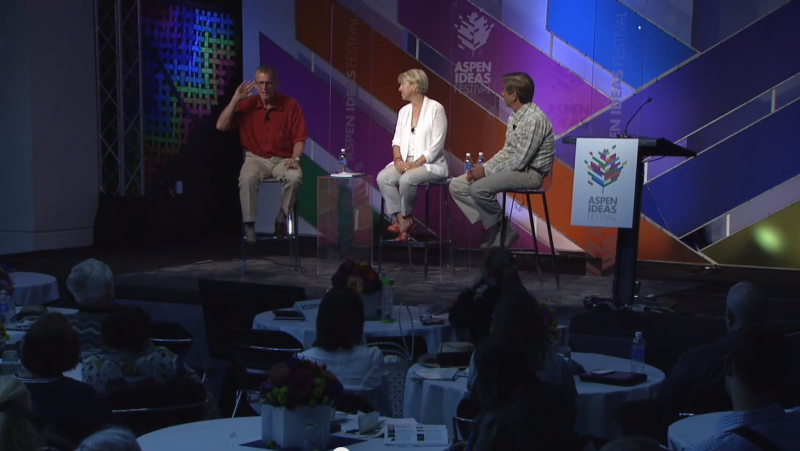
During Day Three of the 2014 Aspen Ideas Festival, civic engagement, especially for the millennial generation, was at the forefront of the discussion for several speakers and moderators. Retired US Army General Stanley A. McChrystal spoke with Director of the US Peace Corps Carrie Hessler-Radelet about the Franklin Project: an initiative to improve the citizenship of young people aged 18 to 28 through one year of service. The idea is to improve the country by empowering its young citizens through one year of full-time, paid service, either in the military, Peace Corps, or other domestic organizations. Although there are several notable barriers preventing the project from getting started, both McChrystal and Hessler-Radelet were optimistic about the effort.
In a discussion titled, Civic Engagement, for Good, Millennial Action Project President and Co-Founder Steven Olikara also stressed the importance of Millennial’s civic engagement. He mentioned the generation is highly idealistic about its effect on the community through social entrepreneurship and other avenues. “The Millennials are about to fundamentally transform politics,” said Olikara, noting that 50 percent of Millennials identify as politically independent.
On the other hand, Olikara mentioned the government system is still rigid and doesn’t allow room for innovation from young government fellows and aides, which is discouraging for Millennials who want to engage civically. “If you want to be involved with the federal government or the government at any level,” Olikara said, “You have to feel like the work you’re producing is producing results.”

